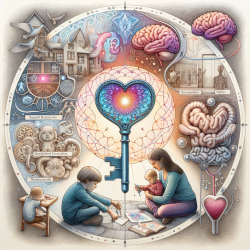Heidegger's Philosophy: A Pathway to Enhanced Therapy Practices
In the realm of speech-language pathology, practitioners constantly seek ways to improve therapeutic outcomes for children. A fascinating, albeit unconventional, source of insight can be found in the philosophical works of Martin Heidegger, particularly his concept of the "ontological difference." This idea, explored in the research article "Heidegger’s Forgetfulness of Difference," offers a unique lens through which therapists can examine and enhance their practices.
Understanding the Ontological Difference
Heidegger's ontological difference refers to the distinction between 'Being' and 'beings.' In simpler terms, it emphasizes the importance of understanding the essence of existence beyond mere physical entities. This philosophical approach encourages therapists to look beyond the surface-level symptoms or behaviors of children and delve deeper into the underlying factors influencing their communication challenges.
Applying Heidegger's Insights to Therapy
By integrating Heidegger's philosophical insights, therapists can adopt a more holistic approach to therapy. Here are a few ways to implement these ideas:
- Holistic Assessment: Rather than focusing solely on observable behaviors, consider the child's environment, emotional state, and social interactions. This comprehensive assessment can uncover hidden factors affecting communication.
- Individualized Interventions: Recognize that each child is unique, and their therapy should reflect their individual 'Being.' Tailor interventions to align with the child's specific needs and strengths.
- Reflective Practice: Encourage therapists to engage in self-reflection, examining their biases and assumptions. This practice can lead to more empathetic and effective interactions with children.
Encouraging Further Research
Heidegger's philosophy offers a rich field for exploration. Practitioners are encouraged to delve deeper into his works and related research to uncover additional insights that can enhance their practice. By doing so, therapists can contribute to a more nuanced understanding of child development and communication disorders.
Conclusion
Incorporating philosophical insights into therapy may seem unconventional, but it can lead to profound improvements in outcomes for children. By embracing Heidegger's ontological difference, therapists can foster a more comprehensive and empathetic approach to therapy, ultimately benefiting the children they serve.
To read the original research paper, please follow this link: Heidegger’s Forgetfulness of Difference.










